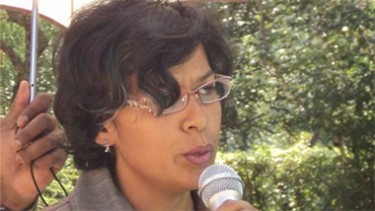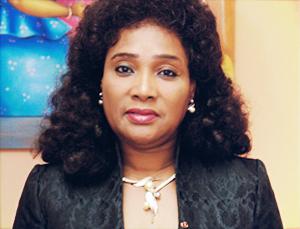Ellen Johnson-Sirleaf paved the way in 2006 when she was elected President of Liberia, the first African woman to reach the top level position. Since then, several other African women have decided to run for presidency, most recently in Benin, Cameroon, Ghana, Guinea, Democratic Republic of Congo and Niger. The outcomes of their campaigns have had various degrees of success so far, although not many expect them to follow in the footsteps of Johnson-Sirleaf just yet.
Yet many African countries are scheduled for elections in 2011-12 and the increase in female candidates is undoubtedly a step in the right direction for a continent that still struggles at times with fair representation of minorities in their political systems.
Clarisse Juompan-Yakam has written an in-depth article [fr] on the subject where she notes that the candidates share many similar traits: they are often highly educated, tenacious politicians who first got involved in the public debate as civil rights activists.
Niger
Juompan-Yakam writes that Mariama Bayard Gamatié, who lost in the recent Presidential elections in Niger, was unhappy with the lack of media coverage her campaign received:
Première Nigérienne à briguer la magistrature suprême, cette fonctionnaire des Nations unies attribue en partie à l’indifférence des médias sa contre-performance à la présidentielle de janvier dernier : 0,38 % des voix au premier tour, le pire score du scrutin.
Gamatié views her candidacy as a stepping stone for other women in the region to follow.
Bénin
One of them was Marie-Élise Akouavi Gbèdo in Bénin whom Mrs Gamatié joined on the campaign trail earlier this year to show her support. Mrs Akouavi Gbèdo did not win the election but she is now Minister of Justice. She helped make polygamy unlawful in Bénin.
Madagascar
In Madagascar, the actual date for the Presidential elections is not yet set. However, Mrs Saraha Georget Rabeharisoa is one of the first to submit her candidacy. Mrs Rabeharisoa is the head of the Green Party in Madagascar. The uncertainty about the electoral calendar [fr] does not agree with her:
L’Etat a fait des dépenses faramineuses pour les membres du gouvernement qui étaient descendus sur le terrain pour sensibiliser les gens à s’inscrire dans les listes électorales… Si actuellement, on décide de ne pas procéder aux élections pour permettre aux citoyens d’exprimer leur choix, on a fait des dépenses pour rien.

Saraha Georget Rabeharisoa, head of the Green Party in Madagascar. Image by http://hasinimadagasikara.mg
The environment, evidently one of the main themes for her political party, is one of the main headlines in Madagascar because of the infamous illegal logging of rosewood from the rain forests. Mrs Rabearisoa weighs in on the scandal [mg]:
Tsy ekena ny fitrandrahana tsy manara-dalàna rehetra eto madagasikara. Mikasika ny fitrandrahana ny andramena, dia efa nanomboka ny taona 2001 no nisian’izany voalohany. Tokony hisy hatrany ny fandraisana andraikitra manoloana izany
Democratic Republic of Congo
In the Democratic Republic of Congo, Angèle Makombo-Eboum is running for the presidential elections of November 2011. She explains that if a woman is good enough to run a household, she ought to be good enough to run the country [fr]. She boasts a Master of Law from the Sorbonne.
Pourquoi le Congo ne ferait-elle comme le Liberia, la Thaïlande, le Brésil ou l'Allemagne où le pouvoir d'Etat est exercé des femmes. Les femmes sont capables de changement . La vie à Kinshasa donne bien l'illustration la plus patente…Ce sont les femmes qui nourrissent les familles. Elles font étudier les enfants.
Cameroon
Cameroonian Édith Kah Walla believes women have to overcome higher hurdles to convince their countrymen that they are competent for the job. Owona Nguini agrees with her [fr] but he also thinks that being a woman can be an important asset:
Le fait que Mme Kah Walla soit une femme peut jouer dans les deux sens..parce que c’est la première fois qu’une femme se présente et c’est rare d’aller jusqu’au bout de la compétition électorale. Ça peut aussi être un handicap compte tenu de la prévalence d’un certain machisme politique qui fait que la grande partie de la société ne voit pas nécessairement une femme à sa tête.








5 comments
Nice one but just a bit surprised that you missed Mrs Sarah Jubril of Nigeria. Jubril still remains ‘the first and only Nigerian woman to aim for the presidency’ in 1991 and 2011 respectively.
Hello there Nwachukwu,
You are right in noticing that we did not mention many worthy women candidates. The post was not meant to be an exhaustive list of all the previous and current candidates but rather to highlight an interesting trend in African politics. In fact, a few readers wrote to suggest current candidates from other countries: Zambia, Senegal and Comoros among others. I also thank you for providing the opportunity to ask readers to follow your lead and post in this section information about other candidates that we did not mention.
You also failed to mention Kenya’s Martha Karua. An independent member of parliament, her campaign is interesting because unlike most other contenders, she is impressively using Twitter and Facebook to gather supporters nationwide.